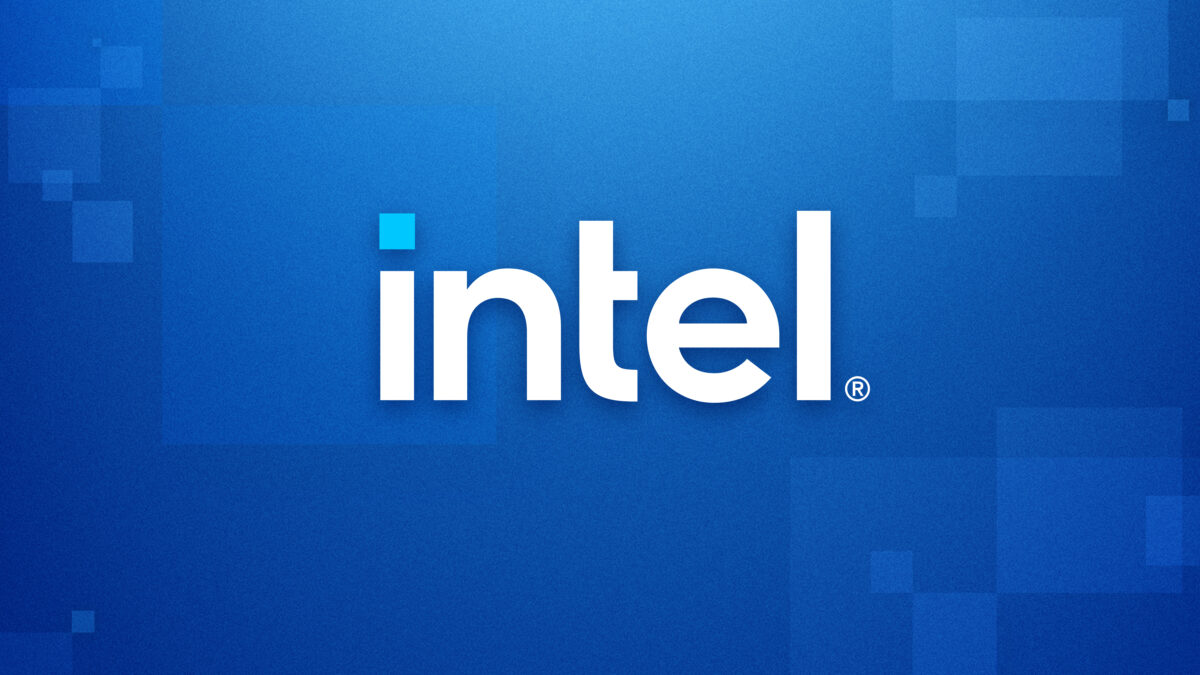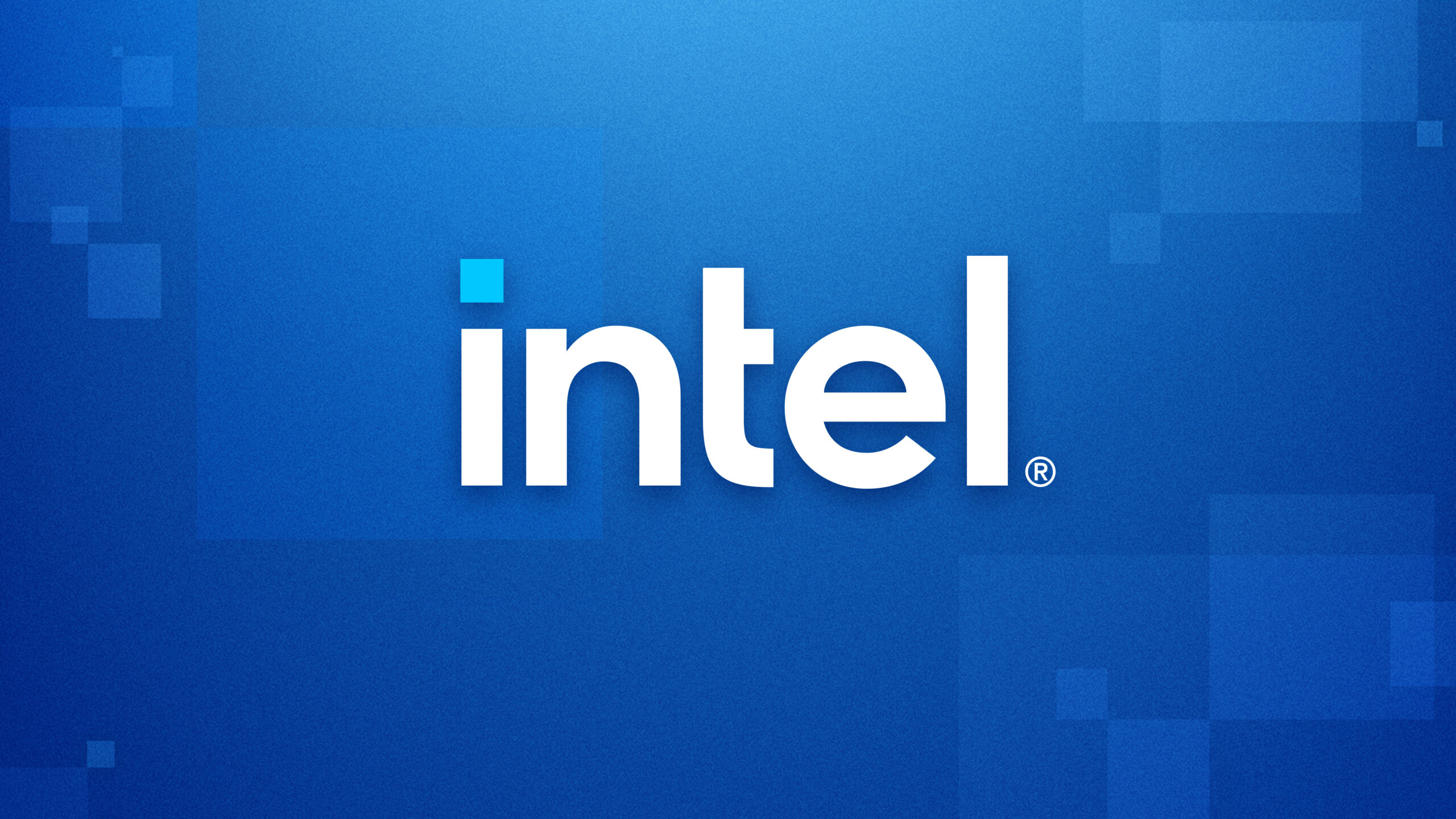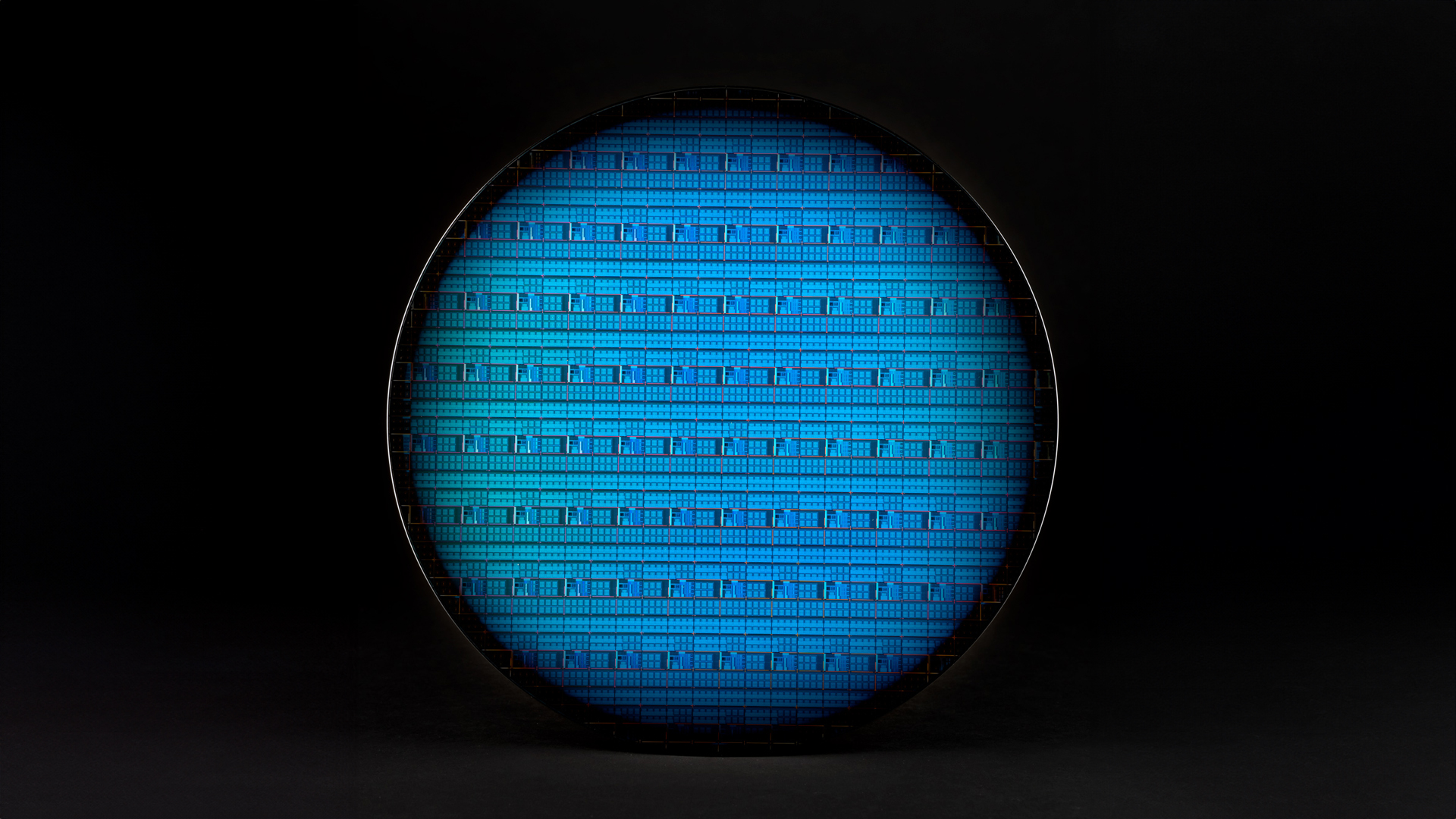Intel Newsroom Archive 2023
December 31, 2023
Published

List of Intel Newsroom articles and news from 2023
In this article:
-
- January 3, 2023: CES Intel Extends Performance Leadership with World's Fastest Mobile Processor
- January 4, 2023: Intel to Report Fourth-Quarter and Full-Year 2022 Financial Results
- January 5, 2023: Meet an Intel Manufacturing Tech
- January 10, 2023: Intel Introduces 4th Gen Xeon Scalable, Max Series (Replay)
- January 10, 2023: Intel Launches 4th Gen Xeon Scalable Processors, Max Series CPUs
- January 12, 2023: 13th Gen Intel Core i9-13900KS Brings Unprecedented Speed to Desktop Users
- January 23, 2023: Intel Board of Directors Appoints Frank D. Yeary as New Independent Chair
- January 26, 2023: Intel Reports Fourth-Quarter and Full-Year 2022 Financial Results
- February 1, 2023: Intel and UC San Diego Join DARPA Program to Prevent Exploitation of Computing Systems
- February 7, 2023: Crafting and Testing the Do-Anything Server Chip
- February 7, 2023: Intel Corp. Prices $11 Billion of Investment Grade Notes
- February 13, 2023: Helping Communication Service Providers Accelerate Their Cloud-Native Journey
- February 15, 2023: Intel Launches New Xeon Workstation Processors – the Ultimate Solution for Professionals
- February 15, 2023: Intel Xeon Desktop Workstations
- February 16, 2023: Aurora – and Borealis – Will Tackle Humanity’s Most Pressing Issues
- February 21, 2023: Intel Corporation to Participate in Upcoming Investor Conferences
- February 22, 2023: 2022 Report Highlights Intel’s Commitment to Product Security Assurance
- February 22, 2023: Intel Updates Capital Allocation to Drive Long-Term Strategy
- February 23, 2023: Pegatron, Intel Develop a Portable 5G Network Solution for Taiwan’s Emergency Responders
- February 27, 2023: Intel Accelerates 5G Leadership with New Products
- February 28, 2023: Intel Releases Quantum Software Development Kit Version 1.0 to Grow Developer Ecosystem
- March 6, 2023: Intel’s New Agilex 7 FPGAs Deliver Industry’s Fastest Transceivers
- March 8, 2023: Intel to Host Data Center and AI Investor Webinar
- March 9, 2023: Intel's Transition of OpenFL Primes Growth of Confidential AI
- March 14, 2023: 4th Gen Intel Xeon Sprints into the Market
- March 14, 2023: Intel at MWC Barcelona 2023
- March 15, 2023: Intel Contributes AI Acceleration to PyTorch 2.0
- March 16, 2023: Anodot, oneDAL Optimize Anomaly Detection Services
- March 21, 2023: Intel Appoints Stuart Pann to Lead Intel Foundry Services
- March 23, 2023: Intel Announces New vPro Platform with 13th Gen Intel Core
- March 23, 2023: Intel Labs Advances Computer Vision Development with Two New AI Models
- March 24, 2023: Gordon Moore He Stood Alone Among Tech Titans
- March 24, 2023: Gordon Moore, Intel Co-Founder, Dies at 94
- March 27, 2023: Intel NUC 13 Pro Small Outside, Powerful Inside
- March 28, 2023: Taking on the Compute and Sustainability Challenges of Generative AI
- March 29, 2023: Four Takeaways from Intel’s Investor Webinar
- April 5, 2023: A Sneak Peek at How Factories Work The Sub Fab
- April 5, 2023: Intel to Report First-Quarter 2023 Financial Results
- April 6, 2023: Intel and DOD Deliver SHIP Program Prototypes to BAE Six Quarters Ahead of Schedule
- April 11, 2023: Intel Helping Power Oregon’s Solar Future
- April 11, 2023: PC Connectivity Insights Help Solutions Providers Deliver Robust Applications and Services
- April 18, 2023: Media Alert Intel at RSA Conference 2023
- April 18, 2023: Our Progress Toward Net-Zero Greenhouse Gas Emissions
- April 19, 2023: Intel Dives into the Future of Cooling
- April 20, 2023: Saving the Desert with AI and Drones
- April 24, 2023: Intel, CrowdStrike and Zscaler Unveil Compatible Solutions for Zero Trust Security
- April 26, 2023: A Trust Service Startup Inside the Chip Company
- April 27, 2023: Intel Reports First-Quarter 2023 Financial Results
- May 4, 2023: 13th Gen Intel Core Processors
- May 5, 2023: Save the Date Gordon Moore Tribute, June 1
- May 10, 2023: Intel Corporation to Participate in Upcoming Investor Conferences
- May 11, 2023: 2022-23 Corporate Responsibility Report – CEO Letter
- May 11, 2023: Intel Surpasses First 2030 Goal $2 Billion in Diverse Supplier Spending
- May 11, 2023: Intel, BCG Collaborate to Deliver Enterprise-Grade, Secure Generative AI
- May 15, 2023: HippoScreen, oneAPI Improve Mental Health Testing
- May 17, 2023: Intel and SAP Embark on Strategic Collaboration to Expand Cloud Capabilities
- May 17, 2023: Intel Ignite Expands to London, Adds 30 New Deep-Tech Startups to Global Cohorts
- May 18, 2023: Intel Flex Series GPU Updated Software Packages
- May 18, 2023: Intel Makes Technology More Accessible for People with Hearing Loss
- May 22, 2023: Broad, Open HPCAI Portfolio Powers Performance, Generative AI for Science
- May 22, 2023: Intel Launches Agilex 7 FPGAs with R-Tile, First FPGA with PCIe 5.0 and CXL Capabilities
- May 23, 2023: AI Coming to the PC at Scale
- June 1, 2023: Gordon Moore at Intel
- June 1, 2023: Tribute Honors Intel’s Gordon Moore (Replay)
- June 5, 2023: PowerVia Test Shows Industry-Leading Performance
- June 5, 2023: With PowerVia, Intel Achieves a Chipmaking Breakthrough
- June 6, 2023: Intel Announces Intel Arc Pro A60 and Pro A60M GPUs
- June 6, 2023: Intel to Host Internal Foundry Model Investor Webinar
- June 7, 2023: Intel-Backed AI Model Helps Researchers Detect Breast Cancer with High Accuracy
- June 8, 2023: IDC Analysis Intel Expands Market Opportunities
- June 8, 2023: Intel Headquarters Images (Photos and B-Roll)
- June 8, 2023: Marrying’ Enhanced Memory with Intel Xeon Processor Cores
- June 12, 2023: 4th Gen Intel Xeon Outperforms Competition on Real-World Workloads
- June 12, 2023: 4th Gen Intel Xeon Scalable Processors
- June 13, 2023: Intel and Ericsson Power First Cloud RAN Call on HPE Servers
- June 15, 2023: Intel Announces Major Brand Update Ahead of Upcoming Meteor Lake Launch
- June 15, 2023: Intel Labs
- June 16, 2023: Intel Plans Investment in Poland
- June 16, 2023: Intel Plans Investments in Europe
- June 19, 2023: Intel, German Government Agree on Increased Scope for Wafer Fabrication Site in Magdeburg
- June 21, 2023: Intel Agrees to Sell Minority Stake in IMS Nanofabrication Business to Bain Capital
- June 22, 2023: Aurora Supercomputer Blade Installation Complete
- June 22, 2023: Intel Announces 2023 EPIC Supplier Program Award Recipients
- June 27, 2023: Chief Technology Officers are Critical for Companies’ Net-Zero Targets, Global Study Shows
- June 27, 2023: Introducing the Sustainable CTO
- June 27, 2023: New MLCommons Results Highlight Impressive Competitive AI Gains for Intel
- June 28, 2023: Intel Tech Helping Design Prototype Fusion Power Plant
- July 5, 2023: Intel to Report Second-Quarter 2023 Financial Results
- July 11, 2023: Intel’s Ocotillo Campus Honored for Water Stewardship
- July 18, 2023: Intel and ASUS Agree to Term Sheet to Take Intel NUC Systems Product Line Forward
- July 18, 2023: Intel and ASUS Help Doctors Detect Cancer with AI-Boosted Solution
- July 18, 2023: RAMP-C Program on Intel 18A Adds 2 Strategic Defense Industrial Base Customers
- July 24, 2023: Intel Accelerates AI Development with Reference Kits
- July 25, 2023: Intel, Ericsson Expand Collaboration to Advance Next-Gen Optimized 5G Infrastructure
- July 27, 2023: Intel Reports Second-Quarter 2023 Financial Results
- August 2, 2023: 4th Gen Intel Xeon Momentum Grows in the Cloud
- August 2, 2023: Intel Allocates $425 Million of Green Bond Proceeds
- August 8, 2023: Intel, Lenovo Open Co-Engineering Lab in Shanghai
- August 8, 2023: Intel, Samsung Deliver Innovative vRAN Solutions
- August 9, 2023: Intel is Poised to Unleash America’s Innovation Boom, Fueled by the CHIPS Act
- August 10, 2023: Intel Corporation to Participate in Upcoming Investor Conferences
- August 14, 2023: Intel and Synopsys Expand Partnership to Enable Leading IP on Intel Advanced Process Nodes
- August 16, 2023: Intel Announces Termination of Tower Semiconductor Acquisition
- August 23, 2023: Architecting the Future of Supercomputing
- August 28, 2023: Intel Unveils Future-Generation Xeon with Robust Performance and Efficiency Architectures
- September 5, 2023: Intel Foundry Services and Tower Semiconductor Announce New US Foundry Agreement
- September 6, 2023: Intel Leads the Way with Advanced Packaging
- September 7, 2023: Intel Ignite Launches First London Cohort
- September 8, 2023: Media Alert Join Intel Innovation on Sept. 19-20
- September 11, 2023: Intel Shows Strong AI Inference Performance
- September 12, 2023: Intel Introduces Thunderbolt 5 Connectivity Standard
- September 12, 2023: Intel to Sell Minority Stake in IMS Nanofabrication Business to TSMC
- September 14, 2023: Intel Celebrates AI Accessibility and Enables the Next Generation of Innovators
- September 14, 2023: Intel Expands FPGA Portfolio
- September 18, 2023: Intel Unveils Industry-Leading Glass Substrates to Meet Demand for More Powerful Compute
- September 18, 2023: Moore’s Law
- September 19, 2023: Intel Innovation 2023 Day 1 Broadcast (Replay)
- September 19, 2023: Intel Innovation 2023 Day 1 Keynote Live Blog
- September 19, 2023: Intel Innovation 2023 Empowering Developers to Bring AI Everywhere
- September 19, 2023: Intel Innovation 2023 Technologies to Bring AI Everywhere
- September 20, 2023: Intel Innovation 2023 Accelerating the Convergence of AI and Security
- September 20, 2023: Intel Innovation 2023 Day 2 Broadcast (Replay)
- September 20, 2023: Intel Innovation 2023 Day 2 Broadcast (Replay)
- September 20, 2023: Intel Innovation 2023
- September 24, 2023: Intel Addresses Semiconductor Workforce Shortage
- September 27, 2023: Media Alert Intel Starts High-Volume EUV Production in Ireland
- September 27, 2023: Tackling Throughput Computing with Sierra Forest
- September 29, 2023: Intel Ireland Begins Intel 4 Production (Replay)
- October 2, 2023: Intel Ignite Announces Startups Selected for Fall 2023 US Cohort
- October 3, 2023: Intel Announces Intent to Operate PSG as Standalone Business
- October 3, 2023: Intel to Report Third-Quarter 2023 Financial Results
- October 10, 2023: Intel Arc A580 Graphics Available Worldwide
- October 16, 2023: Intel Launches Intel Core 14th Gen Desktop Processors for Enthusiasts
- October 18, 2023: Intel’s Arizona Expansion Marks Construction Milestone
- October 19, 2023: Intel Launches Industry’s First AI PC Acceleration Program
- October 23, 2023: Intel's Oregon Investments Fuel US Silicon Innovation Leadership
- October 26, 2023: Intel Joins the MLCommons AI Safety Working Group
- October 26, 2023: Intel Reports Third-Quarter 2023 Financial Results
- October 31, 2023: Media Alert Join Intel AI Everywhere’ Launch Event on Dec. 14
- November 2, 2023: UK’s Fastest AI Supercomputer, Powered by Intel and Dell Technologies, to Drive Research
- November 8, 2023: Intel Gaudi AI Accelerator Gains 2x Performance Leap on GPT-3 with FP8 Software
- November 8, 2023: Intel, Verizon Demonstrate Industry Leading vRAN Solution
- November 13, 2023: Intel Advances Scientific Research and Performance for New Wave of Supercomputers
- November 13, 2023: Intel Technology Powers New Wave of Supercomputers
- November 14, 2023: Intel Commits to Reduce Greenhouse Gas Emissions Across its Value Chain
- November 14, 2023: Intel Publishes Climate Transition Action Plan
- November 16, 2023: In Glass, a View to the Future of Powerful Chips
- November 16, 2023: Intel Corporation to Participate in Upcoming Investor Conference
- November 27, 2023: Intel Granulate Optimizes Databricks Data Management Operations
- November 27, 2023: Intel Technology Helps Power Solution for a More Resilient Grid
- December 4, 2023: Pioneering Tomorrow’s Vehicle Today The Software-Defined Vehicle is Here
- December 4, 2023: Siemens and Intel to Collaborate on Advanced Semiconductor Manufacturing
- December 5, 2023: 10% of Organizations Surveyed Launched GenAI Solutions to Production in 2023
- December 6, 2023: Intel Labs to Present Industry-Leading AI Research at NeurIPS 2023
- December 7, 2023: Four Keys to Moving Enterprise GenAI Projects into Production
- December 7, 2023: Media Alert Intel at CES 2024
- December 9, 2023: Intel Demonstrates Breakthroughs in Next-Generation Transistor Scaling for Future Nodes
- December 13, 2023: Discipline and Process Built Emerald Rapids
- December 14, 2023: Intel Core Ultra Processors
- December 20, 2023: 5th Gen Intel Xeon Processors
- December 20, 2023: ai.io Strikes AI Success with Intel



